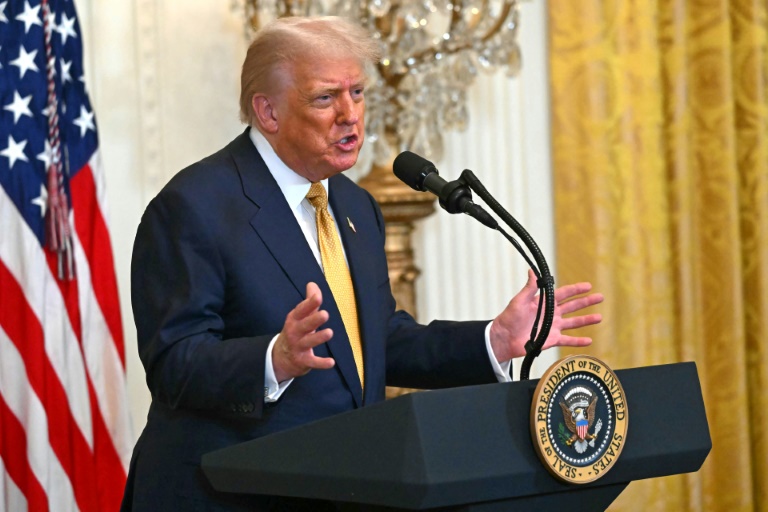Trump unveils major Japan trade agreement

Trump Announces Major Trade Deal with Japan Amid Global Pressure
President Donald Trump has made a significant move in the realm of international trade by announcing a "massive" deal with Japan. This agreement comes as other major U.S. trade partners face a looming deadline to finalize their own pacts before the end of the month. The deal is part of Trump's broader strategy to reduce the United States' massive trade deficit, which he aims to address by imposing punitive tariffs on countries that fail to reach an agreement with Washington by August 1.
The Japan deal, along with another agreement with the Philippines announced on Tuesday, marks the fifth such pact secured since the administration pledged to achieve 90 deals in 90 days back in April. Other agreements include those with Britain, Vietnam, and Indonesia, all of which are expected to ease restrictions on critical mineral exports.
Trump took to his Truth Social platform to highlight the significance of the deal, stating, "We just completed a massive Deal with Japan, perhaps the largest Deal ever made." He emphasized that Japan will invest $550 billion into the United States, with the country receiving 90% of the profits. While he did not provide further details on the investment plan, Trump claimed it would create hundreds of thousands of jobs.
Japanese exports to the United States were already subject to a 10% tariff, which would have increased to 25% on August 1 without a deal. Additionally, duties of 25% on Japanese automobiles—accounting for 8% of Japanese jobs—and 50% on steel and aluminum were already in place. However, under the new agreement, the auto tariff has been reduced to 15%, leading to a surge in Japanese car stocks, with Toyota and Mitsubishi rising around 14% each. The Nikkei index also saw a 3.5% increase.
Key Terms and Conditions of the Agreement
Japanese Prime Minister Shigeru Ishiba highlighted the significance of the deal, noting that Japan is the first country to reduce tariffs on automobiles and auto parts without volume limits. He stated, "By protecting what needs to be protected, we continued the negotiations with an aim to reach an agreement that meets the national interest of both Japan and the United States."
However, the deal does not include changes to the 50% tariffs on steel and aluminum. Additionally, increased defense spending by Japan, a point of emphasis for Trump, was not part of the agreement. Despite this, Trump confirmed that Japan has agreed to open its market to trade, including cars and trucks, rice, and certain agricultural products.
Rice imports remain a sensitive issue in Japan, where the government had previously ruled out any concessions. Currently, Japan imports 770,000 tonnes of rice tariff-free under its World Trade Organization commitments. Ishiba assured that the deal does not sacrifice Japan’s agricultural sector.
Reactions and Concerns from Japanese Stakeholders
Tatsuo Yasunaga, chair of the Japan Foreign Trade Council, welcomed the trade deal but stressed the need for more details to assess its impact. He said, "I highly commend the fact that this major milestone has been achieved and dispelled the uncertainty that private companies had been concerned about."
Naomi Omura, an 80-year-old voter, expressed disappointment that Japan could not act more strongly toward the United States. Meanwhile, Tetsuo Momiyama, 81, suggested that Ishiba is finished and that it is good timing for him to step down following the recent election debacle.
Ongoing Negotiations with Other Countries
While the Japan and Philippines deals are significant, Trump continues to push for agreements with larger trading partners, including China, Canada, Mexico, and the European Union. The U.S. Treasury Secretary, Scott Bessent, announced plans to meet with Chinese counterparts in Stockholm next week.
Earlier this year, the U.S. and China imposed escalating tariffs on each other's exports, reaching triple-digit levels. However, in May, they agreed to temporarily lower these tariffs until August 12. On Wednesday, China expressed support for "equal dialogue" following the Japan-U.S. deal, emphasizing the importance of resolving economic and trade issues through consultation.
As the global trade landscape continues to evolve, the implications of these agreements will likely shape future economic relations between the U.S. and its key trading partners.